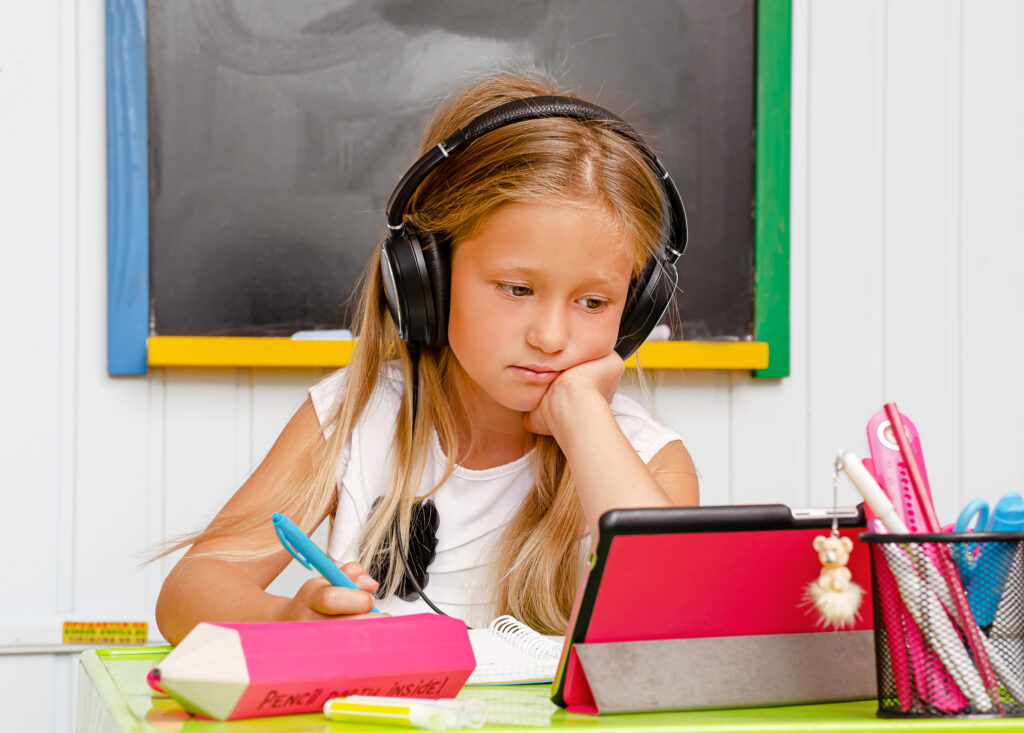
August is here and that means it’s almost time for school. This usually brings a mixture of excitement and anxiety. Parents send their children off to school for the first time, families wait to find out class assignments, and children are ready to see all their school friends again. Some children are transitioning to a new school environment having completed elementary or middle school, and they are both nervous and excited to start this new chapter of life.
This year, however, will be different. We are still living in a pandemic and schools are making hard decisions in efforts to keep students and staff safe. Some school systems will provide virtual instruction, others a hybrid version that provides both in-person and virtual instruction, and some are even providing school on site. Many schools are still in the process of planning schedules for the fall, making it difficult for families to know what to expect. Parents face many concerns. Some wonder how they can manage to help their children with virtual learning while maintaining their full-time job. Others are single parents without family or others to provide support during the day.
There are concerns for the most vulnerable students and how the new school settings can still meet their needs. For those returning to the classroom the health and safety of staff and students is a serious worry. There is an additional concern about how all of this is impacting the social and emotional development of children. Since the pandemic began the safety and security of the world changed. Children, like the rest of the world, are expected to maintain a six-foot distance from others, told to stay at home, wear masks, and normal activities like going to school stopped. A world that once was filled with routines and a sense of normalcy has become chaotic and scary. What is supposed to be a time of anticipation and preparation has become filled with lots of uncertainty. So what can we do to help our children navigate this new reality?
Self-Care
One of the most challenging aspects of the pandemic is chronic stress. Failure to relieve this stress can lead to physical, relational, and emotional problems. This includes feeling burned out, depressed, and unable to be fully present with our families. In a recent APA poll, 46% of parents with kids under 18 reported stress levels above 7 on a ten-point scale. With self-care you become a more reliable anchor in this chaotic time, helping your whole family stay grounded. In your plan, include activities that care for your physical and mental needs. This can include nutrition, exercise, and sleeping habits. Consider what helps you relax. Prayer, mindfulness, and meditation are a few examples. Even journaling, listening to music, and dancing can relieve tension. Without adequate self-care, it is difficult to provide the support your family needs during this pandemic.
Meet Basic Needs
More than ever children need sensitive and caring adults. Meet your children where they are, both emotionally and physically. When children have their basic needs met they are able to focus on other things. If your family is struggling for food or other necessities reach out to the school and the local community. Many schools provide meals for the students and know about other resources that provide additional support. Help your children feel safe and secure by making connections and spending quality time with them. This can be as simple as eating a meal together and talking, playing a game, or reading a story together.
Listen to your children and allow them to express their frustrations, fears, disappointments, sadness, etc. Just like adults, children are grieving the many losses that have come about during the pandemic and are trying to make meaning out of this new world. Setting up routines and creating an environment that is the same each day helps children feel safe.
Make Connections
During the pandemic the need for social distancing, telework, virtual school, and the inability to participate in regular activities has contributed to a sense of isolation. Social connection is important for emotional growth. Try to find ways for you and your family to connect with others. This could be through phone and video calls, socially distanced play dates outside, or finding other families who follow a similar safety protocol as your family to spend time with. Consider Outdoor activities that allow for being together while apart, such as hiking, having a picnic, or playing games like badminton or corn hole. Creating regular times to connect with others can decrease the negative impacts of isolation and improve the emotional and physical wellbeing of your children and family.
If you or your family are struggling with depression, feeling isolated, hopeless, or struggling with continued stressors due to the pandemic you are not alone. You can reach out to Milestones Counseling at 443-574-4295 where we can connect you with a therapist that is the right fit for you and your family.
